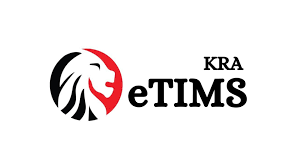As the fiscal year concludes, organizations engage in retrospection, meticulously evaluating achievements and setbacks. However, in the context of financial closures, concealed blind spots pose potential threats to the foundational principles of governance. Internal audit emerges as a critical factor, functioning as a vigilant guardian actively shaping and reinforcing the pillars of corporate governance.
Internal audit as a lead
A comprehensive approach is essential to navigate potential threats. Internal audit teams take the lead in this strategic endeavor, conducting meticulous scrutiny across operational, financial, and regulatory domains. Through comprehensive risk assessments, these teams identify vulnerabilities that may compromise organizational integrity. Subsequently, targeted strategies are employed to mitigate the impact of identified risks, ensuring the implementation of robust controls to fortify the organizational framework.
Concurrently, compliance assurance becomes pivotal in this risk management paradigm. Operating as a guardian of adherence to relevant laws and industry standards, internal audit validates that the organization operates within prescribed legal and ethical boundaries. This symbiotic relationship between risk mitigation and compliance forms the cornerstone of a fortified corporate governance structure. Internal audit not only safeguards against potential pitfalls but also fosters a business environment characterized by resilience, transparency, and accountability. This collective commitment to ethical practices propels the organization towards sustainable success, cultivating a culture that prioritizes risk-aware decision-making and upholds the highest standards of corporate responsibility.
Transparency and accountability
The efficacy of corporate governance relies on the seamless integration of transparency and accountability, integral components in fostering a robust organizational framework. Transparency, marked by unrestricted access to information, serves as a cornerstone for stakeholders to possess a comprehensive understanding of the company’s operational intricacies. Simultaneously, accountability reinforces corporate responsibility by holding individuals within the organization answerable for their actions. This dual commitment to transparency and accountability forms the bedrock upon which the credibility and ethical standing of an organization rest.
Central to the realization of transparency and accountability in corporate governance is the pivotal role played by internal audit functions. Acting as the linchpin within this governance structure, internal audit systematically scrutinizes financial records and processes to ensure adherence to established standards and regulatory requirements. By meticulously examining the intricate details of financial transactions, internal audit enhances the accuracy of financial reporting and fortifies the governance framework by identifying potential areas of risk. This proactive approach not only mitigates risks but also establishes robust accountability mechanisms, reinforcing the commitment to ethical business practices. The result is heightened confidence among stakeholders and strengthened organizational resilience in the face of evolving challenges and uncertainties.
Sustained operational excellence
The efficacy of an internal audit team serves as a linchpin for sustained operational excellence. This multidimensional team delves into the intricate facets of an organization’s operational landscape, undertaking a comprehensive examination that extends well beyond the confines of financial matters. Their discerning focus encompasses operational processes and strategic initiatives, enabling them to identify inefficiencies and propose strategic improvements. This holistic approach positions internal auditors as invaluable contributors to the organizational tapestry, providing an insightful analysis that resonates with the overarching objectives of the entity.
By aligning their findings with the organization’s strategic goals, internal auditors play a pivotal role in enhancing performance metrics. Through this meticulous process, they facilitate the cultivation of a leaner and more efficient business model. The ultimate outcome is a dynamic organizational structure that is adept at meeting and exceeding the expectations of shareholders and the broader community alike. The symbiotic relationship between a well-functioning internal audit team and organizational efficiency underscores the significance of this integral function in the broader spectrum of corporate governance, thereby fortifying the foundation upon which businesses can thrive and evolve.
Organizational governance framework
Internal audit serves as a pivotal component within the organizational governance framework, transcending its conventional role as a defensive mechanism. Rather than solely scrutinizing processes and systems for compliance, auditors actively contribute to the establishment of enduring value. Through meticulous assessments of internal controls, auditors furnish stakeholders with a robust assurance mechanism, cultivating a heightened sense of confidence in the organization’s risk management capabilities and its commitment to fulfilling obligations. This augmented trust extends beyond the confines of the organization, permeating the market and fostering a positive perception. The resultant positive market sentiment, in turn, acts as a catalyst, attracting prospective investors and strategic partners. Thus, internal audit emerges not merely as a compliance-centric function but evolves into a strategic instrument, strategically aligning the company’s objectives with the expectations of its diverse stakeholder base.
In this multifaceted role, internal audit becomes a linchpin for organizational success by fostering transparency and accountability. The assurance provided by auditors is not confined to regulatory adherence but extends to the organization’s overall resilience and capacity to navigate complexities. By fortifying the internal control environment, internal audit becomes a catalyst for mitigating risks and ensuring the fulfillment of organizational commitments. This, in turn, positions the organization as a reliable and trustworthy entity in the eyes of investors, partners, and other stakeholders. Consequently, internal audit functions as a strategic imperative for value creation, harmonizing the company’s strategic objectives with the diverse expectations of its stakeholders. The confluence of rigorous audit processes and strategic alignment transforms internal audit into a proactive force that not only safeguards the organization but actively contributes to its sustained growth and prosperity.
Continuous monitoring and evaluation
A dynamic environment is characterized by a constant interplay of challenges and opportunities. Within this intricate web, the discipline of internal audit assumes a pivotal role, inherently forward-looking in its nature. The primary objective of internal auditors is to facilitate organizational adaptability through a systematic regimen of continuous monitoring and evaluation. By undertaking a proactive stance, internal auditors empower organizations to not merely react to change but to anticipate and strategically respond, thereby positioning themselves at the forefront of industry trends.
The criticality of this adaptability cannot be overstated, particularly within the realm of corporate governance. In the face of economic uncertainties, rapid technological advancements, and regulatory shifts, organizations must cultivate a resilience that extends beyond mere survival. Internal audit emerges as the compass, steering the organization through the turbulent seas of business evolution. By providing insights derived from comprehensive assessments, internal auditors contribute to informed decision-making, fostering a corporate culture that is not only compliant but also strategically positioned for sustainable growth. In essence, internal audit serves as the linchpin for organizations seeking to navigate the complexities of the modern business landscape with prudence and foresight.
In the words of Warren Buffett, ‘Risk comes from not knowing what you’re doing.’ As we navigate the intricate landscape of year-end closing procedures, let us heed this wisdom. By addressing the nuances we’ve explored today, we pave the way for a future where financial clarity and success go hand in hand.













